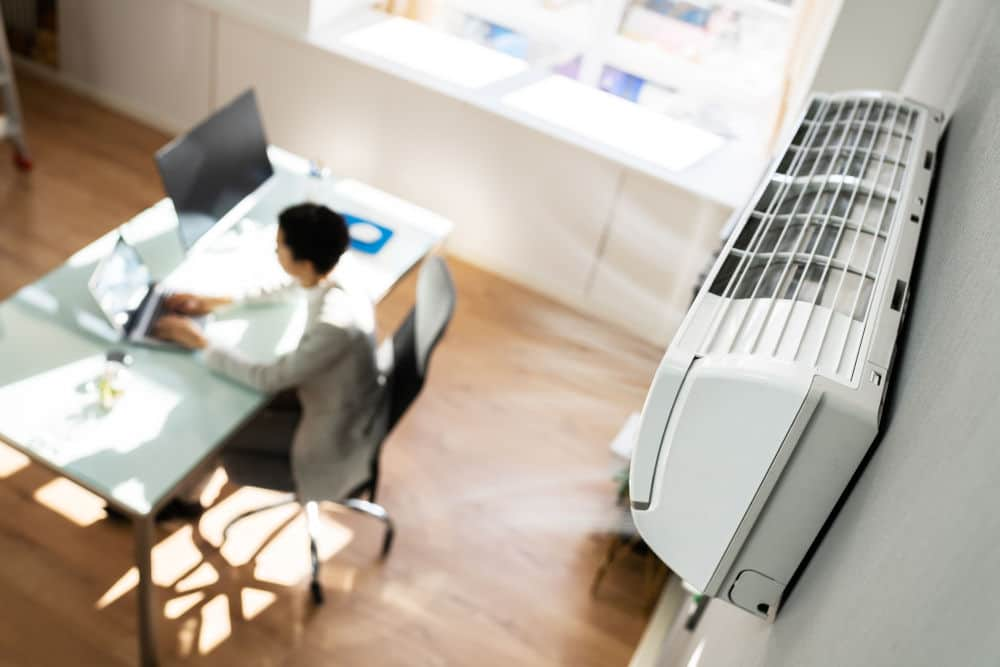In recent years, the concept of the traditional office has undergone a significant transformation. With more and more people working from home, creating a comfortable and productive home office space has become a top priority. One crucial aspect of this transformation is ensuring that your home office maintains a comfortable temperature year-round. To achieve this, you’ll need the right air conditioning unit. If you’re new to working from home and unsure where to start, fear not – we’ve got you covered.
Why does your home office need an air conditioner?
Before delving into the process of choosing the right air conditioning unit, it’s essential to understand why your home office needs one. Maintaining a comfortable temperature in your workspace can significantly impact your productivity and overall well-being. Here’s why:
-
Productivity boost
An optimal temperature ensures you can focus on your tasks without being too hot or too cold, enhancing your work efficiency.
-
Comfort equals creativity
Comfortable working conditions can stimulate creativity and innovation, allowing you to produce better quality work.
-
Health benefits
Proper temperature control helps prevent health issues like heat exhaustion or cold-related illnesses, ensuring your well-being while working.
Now that you understand the importance of an air conditioner in your home office, let’s explore how to choose the right one.
-
Determine your cooling needs
The first step in selecting the perfect air conditioner is to understand your cooling needs. Here are a few key considerations:
-
Room size
Measure the square footage of your home office. Larger rooms will require more cooling power.
-
Insulation
Consider the insulation in your office space. Well-insulated rooms retain temperature better, which can affect the size of the air conditioner you need.
-
Local climate
Think about your local climate. Do you experience hot summers, cold winters, or both?
-
-
Choose the right type of air conditioner
There are several types of air conditioners to choose from, each with its own set of advantages:
-
Window units
These are cost-effective and suitable for small to medium-sized rooms. They are installed in a window or a hole in the wall.
-
Portable units
Portable air conditioners can be moved around easily and are a good choice for small offices or if you’re not allowed to make permanent installations.
-
Split systems
These consist of an indoor unit and an outdoor compressor. They offer efficient cooling and are great for larger rooms.
-
Ductless mini-splits
Similar to split systems but without ductwork, they’re energy-efficient and perfect for cooling individual zones within your home.
-
Consider energy efficiency
When choosing an air conditioner, look for the Energy Star label. Energy-efficient units will save you money on utility bills in the long run. Consider the unit’s Seasonal Energy Efficiency Ratio (SEER) – the higher, the better.
-
Noise level matters
Your home office should be a peaceful and quiet space to work in. Check the decibel rating of the air conditioner to ensure it won’t disrupt your concentration.
-
Installation and maintenance
Consider installation costs and whether it’s a DIY project or if you need professional help. Additionally, factor in maintenance requirements, such as changing filters and cleaning coils, to keep your air conditioner running efficiently.
-
Budget
Finally, consider your budget. While it’s tempting to go for the cheapest option, remember that a higher upfront cost for a more efficient unit can save you money in the long term.
Choosing the right air conditioning unit for your home office is essential for maintaining comfort and productivity. By assessing your cooling needs, selecting the appropriate type of unit, prioritising energy efficiency, and factoring in noise levels and budget, you can create the ideal working environment right in your own home. Don’t underestimate the impact a comfortable temperature can have on your ability to work effectively and enjoy your remote work experience to the fullest.



